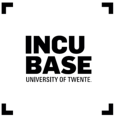As a graduate of the Master’s in Applied Physics with a specialisation in Photonics, you will be in high demand in highly different fields and sectors. You can look forward to an exciting career as an engineer, researcher, product developer, to name some examples. Another option is to continue with a PhD- or EngD programme, like many students do. Or you could become an entrepreneur and start up your own business!
Type of degree
When you have completed this Master's with a specialisation in Photonics, you will receive a Master’s degree in Applied Physics. Also, you can title yourself Master of Science (MSc) or use the title of Engineer/Ingenieur (Ir.) in Dutch. Your specialisation will be mentioned specifically on your diploma supplement, highlighting your specialised knowledge and skills in the field of Photonics.
Job opportunities
In today’s world, it is hard to think of industries that do not rely on optics and photonics in one way or another. Whether we are talking about the telecommunications, IT, automotive, biomedical, consumer electronics, aerospace, or energy sector: they are all using sensors, detectors, microchips, and other optical applications. Then, it comes as no surprise that the demand for experts in this field is particularly high. Specialising in the field of Photonics will open a wide range of career opportunities in highly diverse sectors and industries. Moreover, companies will be eager to onboard you, especially thanks to the excellent reputation that the University of Twente has in the field of photonics.
Because of the broad applications of optics and photonics, the types of companies you can start your career at are highly diverse. You could of course end up working for ASML, like many of our other graduates, or other high-tech manufacturers like Philips, Demcon, Thales, but also big international tech companies like Google, Meta, IBM, HP or Intel are continuously on the look-out for experts in the field of optics and photonics. You could also make your way into the quantum industry and find a job at start-ups like QuiX Quantum or LioniX, work at biosensing companies like XSens, build high-end laser systems at Toptica, or focus on the security of payment systems at a company like Adyen. Or what about joining the space sector and building satellites for earth monitoring at the European Space Agency? The list of job opportunities is nearly endless!
Start a business
At UT, we highly encourage entrepreneurship. This University is the birthplace of a large number of high-tech spin-off companies that market developed technologies. You could use your research or even inventions stemming from your master’s thesis and/or your PhD research to start up your own innovative company as well! UT has been voted the most entrepreneurial university in the Netherlands four times in a row. We have a unique approach of putting scientific knowledge to practical use and turning our expertise and yours into solutions that people and society actually need. As a catalyst for meaningful entrepreneurship, we offer you the Novel-T foundation and their start-up hub Incubase on campus.
Former students have gone before you. For example, LioniX International was once started up by a graduate of Applied Physics at the University of Twente, just like Micronit. Will you be next?
Post-master opportunities
Instead of pursuing a professional career right away after obtaining your Master’s degree, you can also opt for a more academically oriented career, by pursuing a PhD or EngD. An EngD programme is more practically oriented, and aligned with the direct problem-solving or design needs of the industry, whereas a PhD programme is more focused on research. You can follow both types of programmes at the Twente Graduate School (TGS).
Continue as a researcher: obtain a PhD
A PhD (Doctor of Philosophy) involves spending four years of in-depth studying and researching in a particular area. You can do this within one of our research groups or in one of our structured PhD programmes. An integral part of a PhD is writing your PhD thesis at the end and then presenting and defending your research in public. Obtaining your PhD earns you the title of Doctor (Dr).
Follow an EngD programme
Other than obtaining a PhD, you can also opt to follow an EngD programme after graduation. Such a programme usually takes two years and is aimed at you becoming a high-level technological designer. Upon successful completion, you will receive a certified diploma and the academic degree title, Professional Doctorate in Engineering (EngD).

